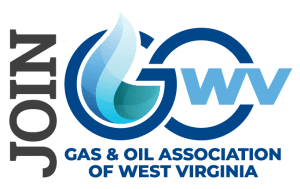Whether heating your home, fueling your car, providing jobs or creating so many of the items we use daily, oil and natural gas play an integral role in all of our lives. These resources make our world turn, and West Virginia sits at the epicenter of the shale revolution.
It’s for these reasons I applied for the job of executive director of the West Virginia Oil and Natural Gas Association. And I feel privileged to be selected as leader of the group.
As a transplant to West Virginia at an early age — I graduated from high school in Greenbrier County and from undergraduate and graduate schools at Marshall University — I made the choice to remain in West Virginia and to establish and grow my career here.
As an environmental and regulatory lawyer who has represented the oil and gas industry in private practice for 15 years, I have helped create policy, laws and regulations that affect the industry and have helped clients understand and comply with these laws and regulations for many years.
WVONGA, which celebrated its 100th anniversary in 2015, serves the entire oil and natural gas industry, and includes companies involved in construction, environmental services, drilling, completion, gathering, transportation, distribution and processing.
Our members have a cumulative investment of nearly $10 billion in West Virginia, account for 80 percent of the state’s oil and natural gas production, operate more than 20,000 miles of pipeline across the state, and provide product to more than 300,000 West Virginia homes and businesses.
The economic contributions of the state’s oil and gas industry are undeniable. In 2016, the industry paid more than $134 million in state and local severance taxes. The gas and oil industry will pay approximately $135 million in local, production-based property taxes to county governments based on 2016 assessments.
But perhaps most importantly, the industry employs thousands of state residents, pays more than $1.5 billion in total wages and offers a median annual salary surpassing $65,000.
With such an impact, the oil and gas industry is a foundation of our state’s economy. And those of us in the industry believe our best days are ahead.
West Virginia and the Appalachian Basin sit atop the second largest gas field in the world. To make the most of this opportunity, the industry needs policies in place that allow for the responsible production of these resources as well as the ability to move the product to market.
For example, West Virginia is one of only three mineral-producing states in the United States that does not have a rational legal framework regarding land issues for the development of the Marcellus shale. This prevents us from reaching the industry’s maximum potential.
We need such frameworks in place to fully develop our resources, whether that be through pooling, co-tenancy law reform, joint development/lease integration or reasonable tax guidelines for valuation of natural resource properties.
The other critical component is the approval and construction of pipeline infrastructure. If we can’t transport the product to market, we can’t fully develop it. It’s that simple.
There are a number of pipeline projects proposed to be built in and through the state. These projects represent one of the single largest private sector infrastructure investments in the state’s history. However, they must first be approved by the Federal Energy Regulatory Commission before construction can begin.
Collectively, these projects represent more than $5 billion in economic impact, tens of thousands of jobs, and significant tax receipts for local government and the state. Once constructed, these lines provide the incentive and opportunity for more gas development in West Virginia, which will equate to more local and state jobs and taxes.
The industry needs more tools, like pipeline infrastructure and pro-development land policies, in the toolbox to make the most of the opportunity in front us. We will work with all stakeholders to make sure that is done in a responsible fashion.
In my new role, I recognize I have big shoes to fill. Corky DeMarco, former director of WVONGA, was a dogged advocate for the natural-gas industry, and I can only hope to live up to the legacy he leaves behind.
Not only was he a well-respected expert and advocate in this field, he was a great person who everyone enjoyed being around. I am honored to be given this opportunity to continue to grow an industry he led for many years in the state he loved.
Creating jobs and growing our economy: That’s the opportunity this industry offers West Virginians, and I’m thrilled to be a part of it.
Anne C. Blankenship is director of the West Virginia Oil and Natural Gas Association.

